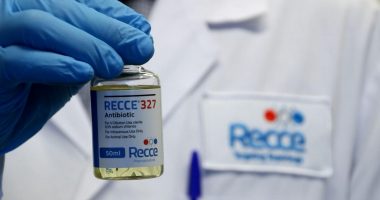- AdAlta shares were up almost 40 per cent this morning after announcing it has signed a commercial agreement with GE Healthcare
- The agreement will see both companies develop i-bodies for diagnostic imaging
- i-bodies help in the selection and monitoring of patients receiving immunotherapy
AdAlta shares were up almost 40 per cent one point this morning after announcing the signing of a commercial agreement with GE Healthcare.
The licensing deal will see both companies develop i-bodies for diagnostic imaging. If the development is successful, it could help identify molecular markers of activated T-cells. This, in turn, could help in the selection and monitoring of patients receiving immunotherapy.
An i-body is a human protein that is built on the scaffold of a human protein and engineered with two loops that mimic the shape of shark antibodies.
Similar to the antibody of a shark, one of the two loops is very long – up to twice the length of human antibodies. This long loop gives the i-body a superior ability to access all the nooks and crannies.
The size of a traditional antibody is roughly 150,000Da (atomic units), whereas an i-body is less than one-tenth of that size, at 12,000Da.
These loops are responsible for binding or interacting with a particular target that causes the disease.
Initial work will focus on Granzyme B, an amino acid enzyme that is commonly secreted by immune cells in cancer.
“We are thrilled to have secured this licensing deal with one of the world’s largest healthcare companies,” AdAlta Executive Chairman Paul MacLeman said.
“This is a key step towards our goal of becoming a global player in next-generation antibodies. The small size and flexibility of the i-body makes it ideal as an imaging agent.”
In parallel with driving this commercial deal, AdAlta is now focused on building forward value from the AD-214 therapeutic program in Idiopathic Pulmonary Fibrosis, which is due to enter human trials in January 2020.
AD-214 contains two AD-114 i-body molecules that increase its ability to bind to the human target of CXCR4 (alpha-chemokine receptor cells) where it extends its therapeutic effect.
AdAlta is remaining on track for the preparation of this trial.








